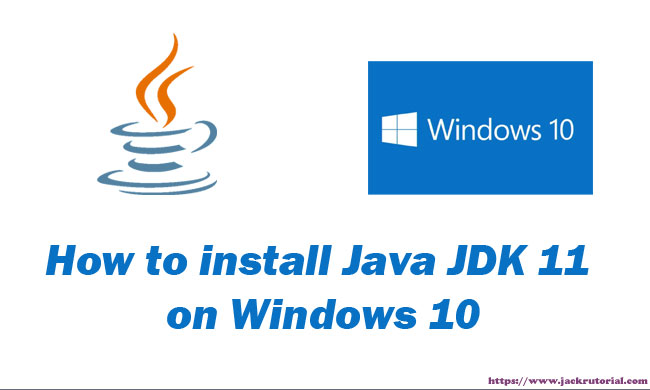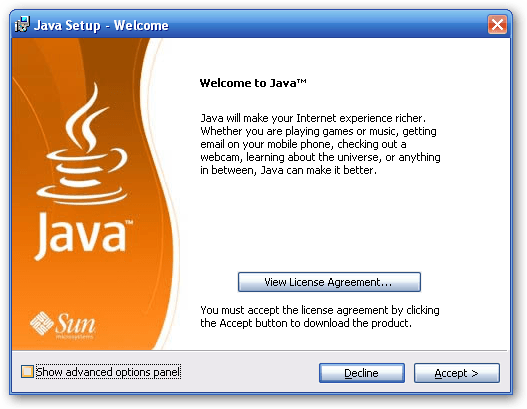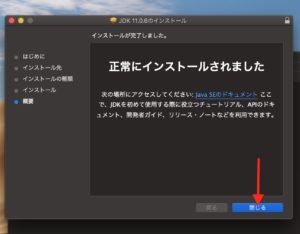

- #Java se development kit 11 downloads oracle install#
- #Java se development kit 11 downloads oracle update#
- #Java se development kit 11 downloads oracle manual#
- #Java se development kit 11 downloads oracle Patch#
You will need to add the third-party repository in your system in order to install Oracle Java.įirst, install the required dependencies with the following command: apt-get install gnupg2 software-properties-common OpenJDK 64-Bit Server VM (build 17.0.2+8-Ubuntu-120.04, mixed mode, sharing Install Oracle JDK 17 on Ubuntu 20.04 – APT PPA Methodīy default, Oracle Java is not available in the Ubuntu 20.04 default repository. OpenJDK Runtime Environment (build 17.0.2+8-Ubuntu-120.04)

You should get the following output: openjdk 17.0.2 Once installed, verify the Java version using the following command: java -version This is the easiest way to install the JDK using the apt package manager: apt install openjdk-17-jdk openjdk-17-jre Ubuntu 20.04’s default repository included Java 17. You can do this by running the following commands: apt-get updateĪpt-get upgrade Install OpenJDK 17 from Ubuntu 20.04 Repository Additionally, replace ‘root’ with the username of the admin account if necessary.īefore starting, you have to make sure that all Ubuntu OS packages installed on the server are up to date. You will need to replace ‘ IP_Address‘ and ‘Port_number‘ with your server’s respective IP address and SSH port number.
#Java se development kit 11 downloads oracle update#
Log in to the Server & Update the Server OS Packagesįirst, log in to your Ubuntu 20.04 server via SSH as the root user: ssh -p Port_number
#Java se development kit 11 downloads oracle manual#
#Java se development kit 11 downloads oracle Patch#
October 2021 Critical Patch Update Released Java SE 7 Advanced and Java SE 7 Support (formerly known as Java for Business 7) Release Notes Java Development Kit 8 Update Release Notes Listing of Java Development Kit 11 Release Notes Listing of Java Development Kit 17 Release Notes Verify Java and Find Out-of-Date Versions If you do not require Java, please do not install.) (In environments where Java is not installed, there may be a request to install Java. If both 32-bit and 64-bit versions of Java are installed,please check the versions installed, using a 32-bit and 64-bit browser respectively. Users can check the version of Java that they are using at the page below. Please check the versions installed on your system and apply the appropriate updates. Users of 64-bit Windows may have 32-bit and/or 64-bit versions of JDK/JRE installed. Please update to the latest version after considering any possible impacts to applications that you may use. Some applications that use affected products may not run properly after updating the software to the latest version.

* As for Oracle Database Server/Oracle WebLogic Server, details of the updated versions are not available as of October 20. As for Java SE, the following versions have been released: SolutionOracle has released updates for each product.

Please check if any of the affected products is included in the PCs or servers that you use. In addition, there are cases where Java JRE is pre-installed on the PC or WebLogic is used in software products for servers. However, since there are many other versions and products affected by these vulnerabilities, please refer to the information provided by Oracle for more details. Affected ProductsProducts affected by these vulnerabilities include: Users of the affected products are recommended to update to the latest version appropriately. Oracle Critical Patch Update Advisory - October 2021Ī remote attacker may perform unauthorized operations or unauthorized deletion or falsification of sensitive information. OverviewOn Octo(US Time), Oracle released critical patch updates for multiple Oracle products.


 0 kommentar(er)
0 kommentar(er)
